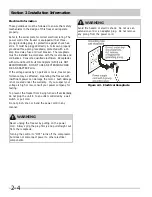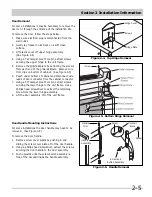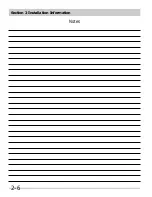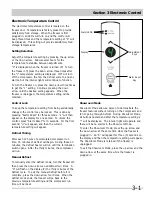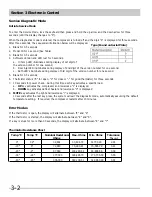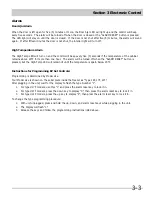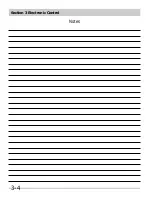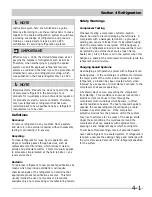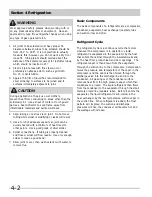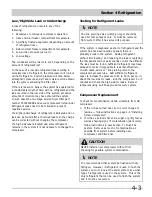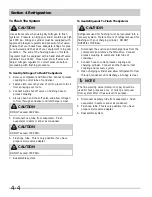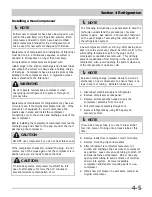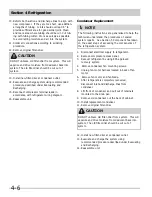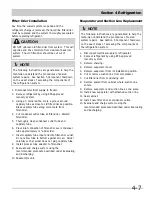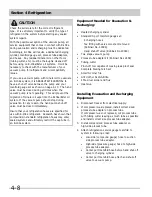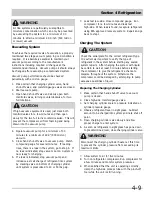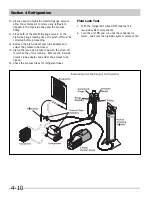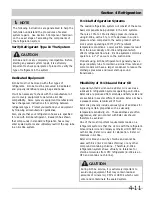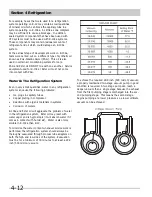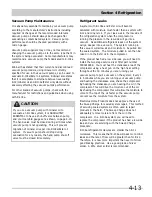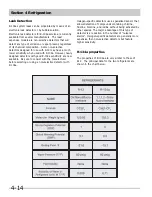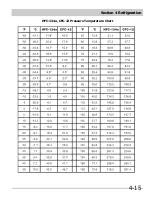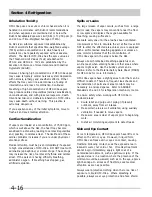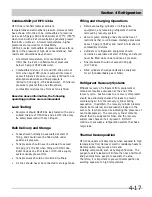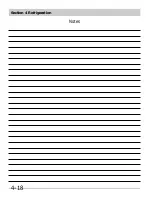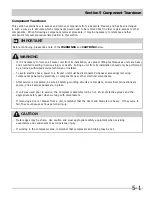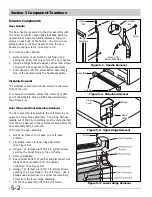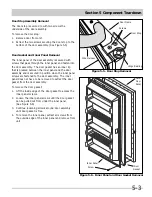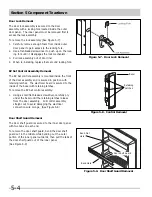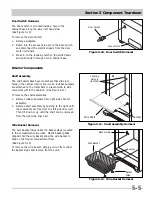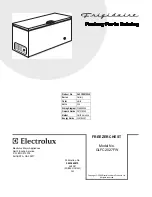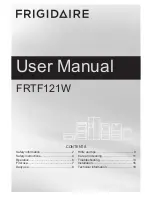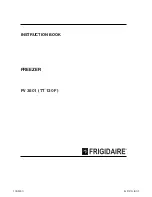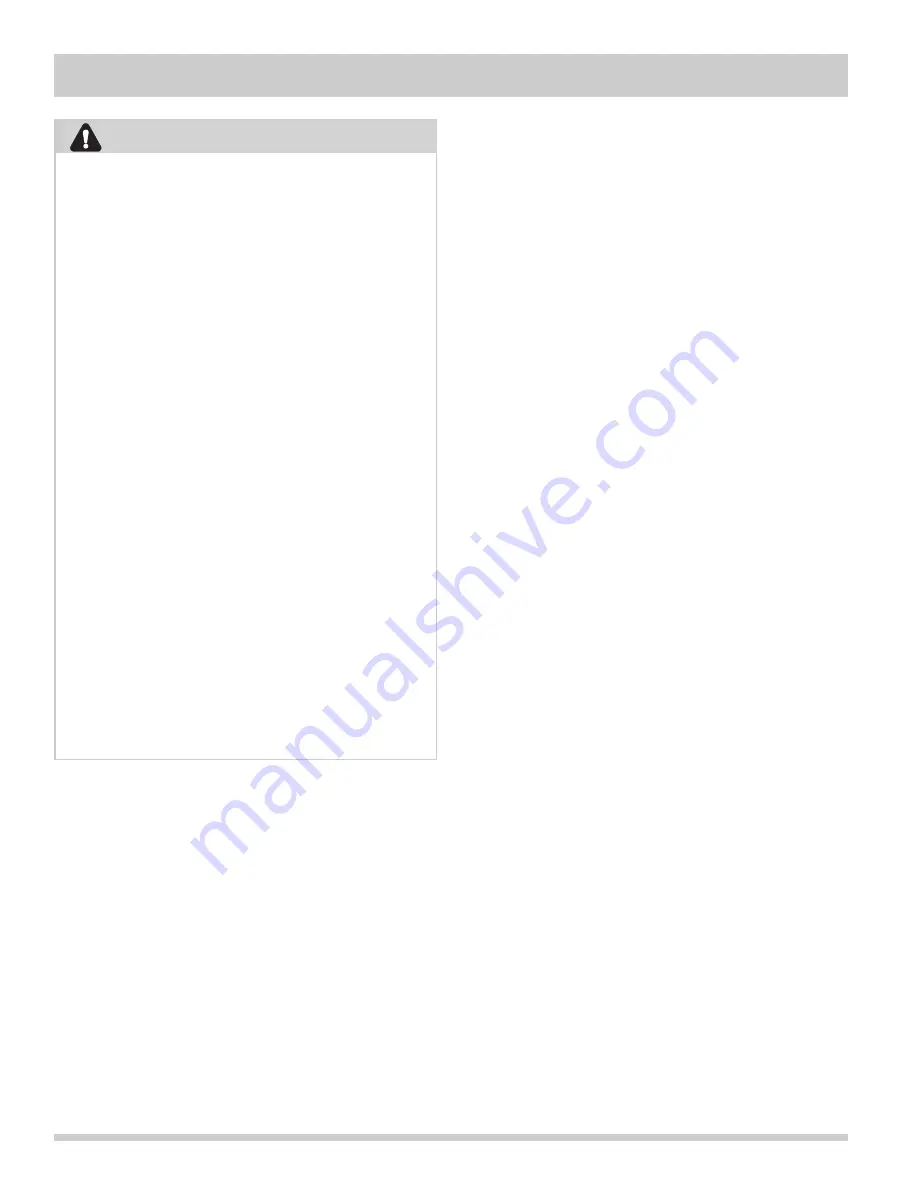
Section 4 Refrigeration
4-8
Equipment Needed for Evacuation &
Recharging:
•
Heated charging cylinder
•
Standard 3-port manifold gauge set:
- 4 charging hoses
- Tee fitting with valve core stem removed
(Robinair No. 40396)
- Hand shut-off valve (Robinair No.40380)
•
Two stage vacuum pump
•
Process tube adapter kit (Robinair No.12458)
•
Tubing cutter
•
Pinch-off tool capable of making leak proof seal
•
Complete brazing torch set
•
Small 3-corner file
•
Grit cloth or Scotch-Brite
•
45% silver solder and flux
•
Heat Gun
Installing Evacuation and Recharging
Equipment
1. Disconnect freezer from electrical supply.
2. If compressor was replaced, install correct sized
process tube adapter on process tube.
If compressor was not replaced, cut process tube
with tubing cutter leaving as much tube as possible
and install correct size process tube adapter.
3. Install correct sized process tube adapter on
high-side process tube.
4. Attach refrigeration service gauge manifold to
system in following order:
• Low-side (compound gauge) hose to suction
side process tube adapter.
•
High-side (pressure gauge) hose to high-side
process tube adapter.
•
Center port manifold hose before hand shut-off
valve to charging cylinder.
•
Center port manifold hose after hand shut-off
valve to vacuum pump.
Check the serial plate for the correct refrigerant
type. It is extremely important to verify the type of
refrigerant in the system before starting any sealed
system repairs.
With the possible exception of the vacuum pump, all
service equipment that comes in contact with R-134a
during evacuation and recharging must be dedicated.
Accordingly, R-134a will require a dedicated charging
cylinder, manifold gauge set, process tube adapters,
and hoses. Any residual mineral oil on other tools
(tubing cutter, etc.) must be thoroughly cleaned off
before using on R-134a/Ester oil systems. It will be
necessary to check with the manufacturer of your
vacuum pump for refrigerant and oil compatibility
issues.
If you use a vacuum pump with mineral oil to evacuate
an R-134a system, it is ABSOLUTELY ESSENTIAL to
have a shut-off valve between the pump and your
manifold gauge set as shown on page 4-10. The hand
valve must be closed during all times when the
vacuum pump is not operating. This will prevent the
migration of mineral oil vapor into the R134a/Ester oil
system. If the vacuum pump should stop during
evacuation for any reason, the hand pump shut-off
valve must be closed immediately.
Insure that your refrigeration hoses are specified for
use with R-134a refrigerant. Research has shown that
compounds in standard refrigeration hoses may enter
sealed systems and ultimately restrict the cap tube in
an R-134a system.
CAUTION
Summary of Contents for FFH17F8HW0
Page 2: ......
Page 14: ...Section 2 Installation Information 2 6 Notes ...
Page 18: ...Section 3 Electronic Control 3 4 Notes ...
Page 33: ...Section 4 Refrigeration 4 15 HFC 134a CFC 12 Pressure Temperature Chart ...
Page 36: ...Section 4 Refrigeration 4 18 Notes ...
Page 48: ...Section 5 Component Teardown 5 12 Notes ...
Page 53: ...Section 7 Wiring Diagram 7 1 ...

